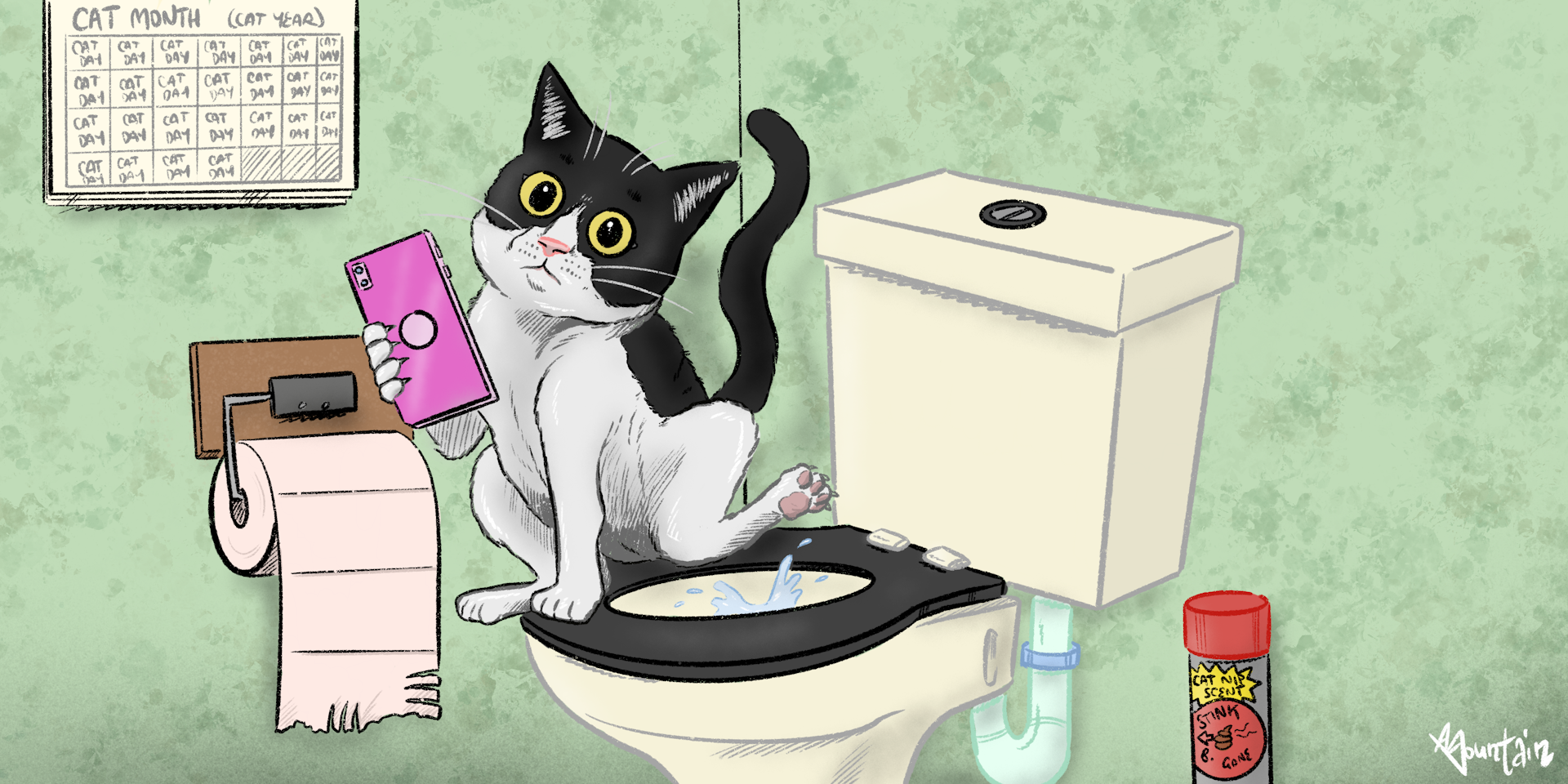What're your ideas with regards to How to Dispose of Cat Poop and Litter Without Plastic Bags?

Intro
As cat owners, it's necessary to bear in mind exactly how we dispose of our feline pals' waste. While it may seem practical to flush cat poop down the toilet, this practice can have detrimental consequences for both the environment and human wellness.
Alternatives to Flushing
The good news is, there are more secure and a lot more responsible ways to take care of pet cat poop. Think about the following choices:
1. Scoop and Dispose in Trash
One of the most common technique of disposing of feline poop is to scoop it right into a naturally degradable bag and toss it in the garbage. Be sure to utilize a specialized clutter inside story and deal with the waste quickly.
2. Usage Biodegradable Litter
Select eco-friendly cat clutter made from products such as corn or wheat. These clutters are eco-friendly and can be securely disposed of in the trash.
3. Bury in the Yard
If you have a lawn, take into consideration hiding pet cat waste in a designated location away from veggie yards and water sources. Be sure to dig deep enough to avoid contamination of groundwater.
4. Mount a Pet Waste Disposal System
Invest in a family pet garbage disposal system especially made for feline waste. These systems utilize enzymes to break down the waste, decreasing odor and ecological influence.
Health and wellness Risks
In addition to ecological concerns, purging feline waste can also posture health and wellness risks to human beings. Cat feces might include Toxoplasma gondii, a bloodsucker that can trigger toxoplasmosis-- a possibly serious ailment, especially for expectant ladies and people with weakened immune systems.
Ecological Impact
Flushing feline poop presents damaging virus and parasites into the water system, posturing a significant danger to marine communities. These pollutants can adversely affect aquatic life and concession water top quality.
Verdict
Liable pet ownership extends past providing food and sanctuary-- it likewise involves correct waste monitoring. By refraining from flushing pet cat poop down the bathroom and choosing alternative disposal approaches, we can reduce our environmental impact and safeguard human wellness.
Why Can’t I Flush Cat Poop?
It Spreads a Parasite
Cats are frequently infected with a parasite called toxoplasma gondii. The parasite causes an infection called toxoplasmosis. It is usually harmless to cats. The parasite only uses cat poop as a host for its eggs. Otherwise, the cat’s immune system usually keeps the infection at low enough levels to maintain its own health. But it does not stop the develop of eggs. These eggs are tiny and surprisingly tough. They may survive for a year before they begin to grow. But that’s the problem.
Our wastewater system is not designed to deal with toxoplasmosis eggs. Instead, most eggs will flush from your toilet into sewers and wastewater management plants. After the sewage is treated for many other harmful things in it, it is typically released into local rivers, lakes, or oceans. Here, the toxoplasmosis eggs can find new hosts, including starfish, crabs, otters, and many other wildlife. For many, this is a significant risk to their health. Toxoplasmosis can also end up infecting water sources that are important for agriculture, which means our deer, pigs, and sheep can get infected too.
Is There Risk to Humans?
There can be a risk to human life from flushing cat poop down the toilet. If you do so, the parasites from your cat’s poop can end up in shellfish, game animals, or livestock. If this meat is then served raw or undercooked, the people who eat it can get sick.
In fact, according to the CDC, 40 million people in the United States are infected with toxoplasma gondii. They get it from exposure to infected seafood, or from some kind of cat poop contamination, like drinking from a stream that is contaminated or touching anything that has come into contact with cat poop. That includes just cleaning a cat litter box.
Most people who get infected with these parasites will not develop any symptoms. However, for pregnant women or for those with compromised immune systems, the parasite can cause severe health problems.
How to Handle Cat Poop
The best way to handle cat poop is actually to clean the box more often. The eggs that the parasite sheds will not become active until one to five days after the cat poops. That means that if you clean daily, you’re much less likely to come into direct contact with infectious eggs.
That said, always dispose of cat poop in the garbage and not down the toilet. Wash your hands before and after you clean the litter box, and bring the bag of poop right outside to your garbage bins.
https://trenchlesssolutionsusa.com/why-cant-i-flush-cat-poop/

We had been introduced to that report about Don’t flush cat feces down the toilet from someone on another web blog. Sharing is caring. Who knows, you may very well be helping someone out. I truly appreciate reading our article about Don’t flush cat feces down the toilet.
Schedule Free Estimate